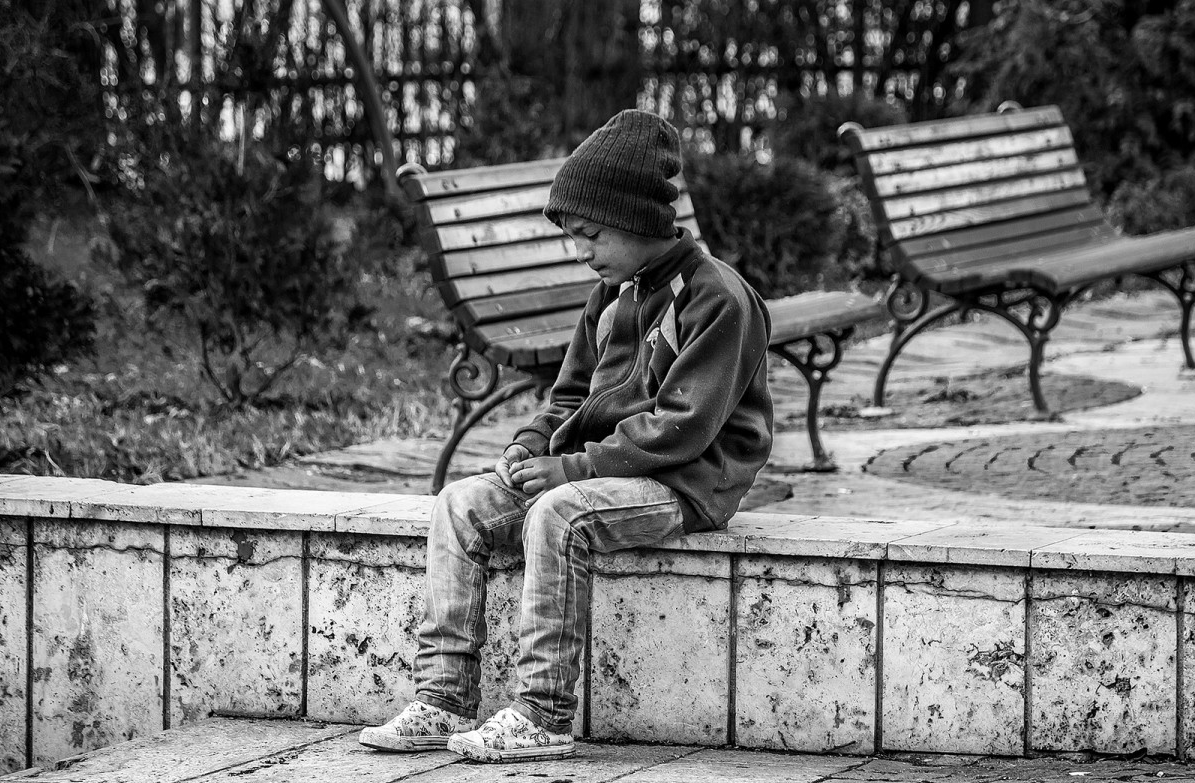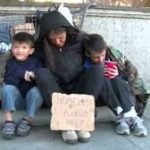The Children Who Experience Homelessness by Grace Pires
.

“Each year, an estimated 4.2 million youth and young adults experience homelessness, of which 700,000 are unaccompanied minors, meaning they are not part of a family or accompanied by a parent or guardian. On any given night, approximately 41,000 unaccompanied youth ages 13-25 experience homelessness.”
– National Conference of State Legislatures (NCSL) | Youth Homelessness Overview
Though we often consider our society to be quite progressive, the statistics of homeless children and teenagers is a testament against the modernity flaunted by major institutions. It’s a weak point, certainly, and the situation is only becoming increasingly dire. Parents of color and of lower wages live in communities that face the brunt of imprisonment for minor misdemeanors, while immigrant parents face deportation by ICE. Both challenges result in families being torn apart, with many children ending up homeless or in the foster care system.

Though foster care is often a better alternative than homelessness, the system has its fair share of inadequacies. Addressing the issues in the foster care system would benefit not only the children of immigrant families or families of color, it would benefit any and all children placed within the system for whatever reason. In April, The Boston Globe ran an article detailing the hopes of advocates for ameliorating the current foster care structure. The current system struggles with “conflicts of interest” among other serious issues that prevent maximum efficiency and care for its children. The system is also in charge of evaluating itself, which leads to biased reporting. Advocates are calling for an unaffiliated organization dedicated to monitoring the activities within our foster care system.
The current foster care system also lacks stability for the children in its care, with living situations frequently changing. This lacks a certain level of understanding, and prioritizes outward efficiency instead of internal adequacy. In such a serious developmental stage for children, it’s important that their living  situation doesn’t add to the mental stress they may be experiencing when separated from their families or either orphaned entirely. Foster care needs a serious revamping in terms of completely prioritizing the wellbeing of the children—but there are other ways to help combat the abundance of children who experience homelessness. Addressing incarceration rates and deportation laws can help keep families together and target the problem at the source, avoiding some of the strife placed on our children through the foster care system.
situation doesn’t add to the mental stress they may be experiencing when separated from their families or either orphaned entirely. Foster care needs a serious revamping in terms of completely prioritizing the wellbeing of the children—but there are other ways to help combat the abundance of children who experience homelessness. Addressing incarceration rates and deportation laws can help keep families together and target the problem at the source, avoiding some of the strife placed on our children through the foster care system.
Resources: Stand Up for Kids: How to Help | Horizons for Homeless Children: How to Help | Housing Families: How to Help

